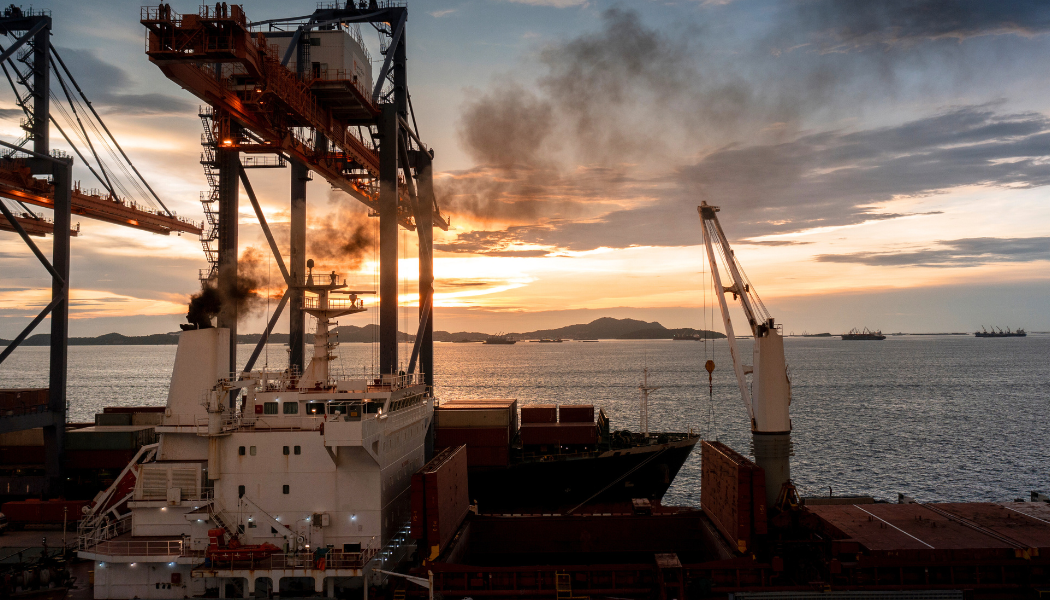MEPC 80, the 80th session of the Marine Environment Protection Committee (MEPC) of the International Maritime Organization (IMO), has adopted a revised GHG Strategy. The main objective of the revised strategy is to significantly reduce greenhouse gas (GHG) emissions in international shipping. The new targets aim for a 20% reduction in emissions by 2030 and a 70% reduction by 2040, compared to 2008. The ultimate goal is to achieve net-zero emissions by 2050.

Albion Marine Solutions: Your Trusted Partner in Sustainable Shipping.
We offer turnkey solutions to help you reduce GHG emissions from your shipping operations. Our comprehensive approach combines cutting-edge technologies, expert guidance, and tailored strategies to optimize efficiency and minimize environmental impact. Trust Albion Marine Solutions to navigate the transition to a greener future.
Key Takeaways from the Meeting:
• Adoption of an updated GHG Strategy with enhanced goals
• Adoption of guidelines for assessing the lifecycle of marine fuels
• Approval of amendments to the Data Collection System (DCS), mandating more comprehensive fuel consumption data
• Approval of circular outlining regulations for the use of biofuels under the DCS and Carbon Intensity Indicator (CII)
Energy Efficiency Design Index (EEDI): In MEPC 80, an agreement was reached to correct the comparison of tank sizes for dual fuel engines in the EEDI survey and certification guidelines.
Reporting power reserve usage for ShaPoLi/EPL systems in the EEXI framework: MEPC 80 adopted revised "Guidelines on the Shaft/Engine Power Limitation System to Comply with the EEXI Requirements and Use of a Power Reserve." These guidelines establish consistent reporting requirements and a format for reporting power reserve usage to the administration.
Review of the Energy Efficiency Existing Ships Index (EEXI) and Carbon Intensity Indicator (CII): MEPC 80 established a plan to review the short-term GHG reduction measures, CII, and EEXI.
Revision of the Data Collection System (DCS): MEPC 80 approved amendments to Appendix IX of MARPOL Annex VI, which include additional data elements to be reported through the DCS. These elements encompass fuel consumption per fuel type and energy consumption by various systems. The amendments also address the accessibility of data in Regulation 27, allowing data to be shared with IMO-contracted consultants under strict confidentiality agreements.
Use of biofuels under the DCS and CII: MEPC 80 agreed on a circular that provides a unified approach for accounting the use of biofuels under Regulations 26, 27, and 28 of MARPOL Annex VI (DCS and CII).
Reduction of GHG emissions - Revision of the IMO GHG Strategy: The initial 50% GHG reduction ambition by 2050 has been significantly strengthened in the revised strategy. The updated strategy aims to reduce well-to-wake GHG emissions by 20%, with a target of 30% by 2030 and 70% by 2040 (compared to 2008 levels). The strategy also seeks to achieve net-zero emissions around 2050. Additionally, there is a 2030 target to adopt zero or near-zero GHG emissions technologies, fuels, and/or energy sources, accounting for at least 5% and striving for 10% of the energy used in international shipping.
Mid and long-term measures to reduce GHG emissions: To achieve these ambitions, the IMO has decided to implement a combination of measures. Firstly, a technical element will be introduced, which involves a goal-based marine fuel standard regulating the gradual reduction of marine fuel GHG intensity. Secondly, an economic element will be implemented, in the form of a maritime GHG emissions pricing mechanism directly linked to the GHG intensity mechanism.
Life cycle GHG/carbon intensity for marine fuels: MEPC 80 adopted the "Guidelines on Life Cycle GHG Intensity of Marine Fuels" (LCA Guidelines). These guidelines outline the methods for calculating well-to-wake and tank-to-wake GHG emissions for all fuels, and energy carriers used onboard ships, including electricity.
Onboard carbon capture: MEPC 80 discussed initiating a work process on the application of onboard carbon capture and storage or utilization. However, the decision was made to postpone further discussions on this matter until the next inter-sessional meeting of the Working Group on GHG reductions.
Further, MEPC 80 has approved amendments to the Ballast Water Management Convention, specifically related to the format of the Ballast Water Record Book. The objective is to enhance the accuracy and clarity of recorded information regarding ballast water operations on ships. These amendments will become effective on 1 February 2025.
Concerning the ballast water record-keeping and reporting, MEPC 80 has approved the circular titled "Guidance on matters relating to ballast water record-keeping and reporting." Additionally, the Committee has adopted the resolution titled "Guidance for the Use of Electronic Records Books under the BWM Convention."
In relation to biofouling, MEPC 80 has adopted the revised "Guidelines for the Control and Management of Ship's Biofouling to Minimize the Transfer of Invasive Aquatic Species. Contact us at



